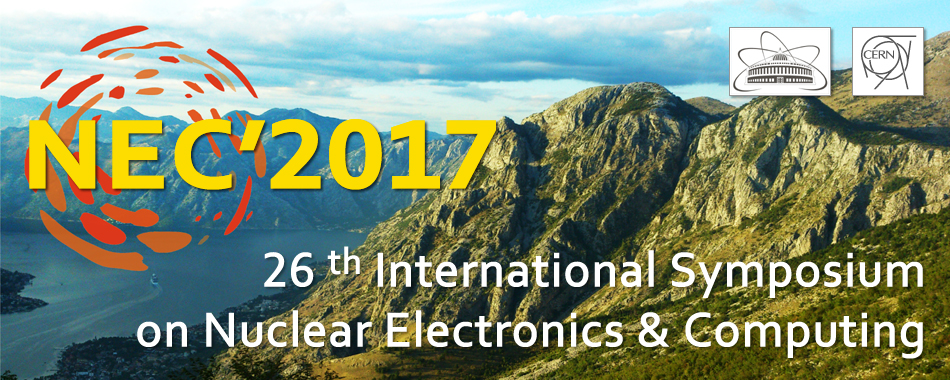Speaker
Ms
Victoria Belaga
(JINR)
Description
Rapid development of information and communication technologies and widespread use of the Internet have led to a qualitative change in the educational technologies used around the world. The most popular form of training nowadays is blended learning, when a full-time educational process is complemented with computer-learning tools: online courses, interactive practicums and laboratory works, computer modelling tools and simulators.
Solving the problem of integration of education and science presupposes establishing an efficient and sustainable interaction of universities with research centers and institutes. The main mission of the JINR laboratories is generating new knowledge. To develop successfully, the laboratories need to attract talented young people and highly qualified professionals to work at JINR. Moreover, there are highly skilled specialists currently working at JINR, who could share their knowledge through online courses intended for students from various universities of Russia and the Member States.
On the other hand, the universities are interested in training highly qualified specialists to work on scientific projects. For this purpose, it is necessary to solve the problem of cooperation between universities and research centers aimed at coordinating the relevant educational programs, as well as to integrate the results of modern experiments in the educational process in the form of special courses and electives, or as independent course units of the basic disciplines.
In the past four years, the most popular new educational technologies frequently used in the further educational process are massive open online courses (MOOCs). The world’s leading American and European universities – Harvard University, Massachusetts Institute of Technology, Stanford University, etc. – have adopted these technologies. Today, the most extensive MOOC platforms are being developed by the US universities: more than 10 million users in edX, more than 4 million – in Udacity, and more than 23 million – in Coursera. In our country there are also several platforms offering open educational resources: "Open Education", "Universarium", "Lectorium".
However, when it comes to training specialists to work in the projects on the top-priority research fields and MEGASCIENCE projects, it is worth listing a number of problems that cannot be solved by the existing MOOC model:
• Survey of employers’ (research centers’) opinion in order to generate a list of positions for which young specialists are to be engaged and an appropriate set of skills that the applicants should master
• Generation of a list of courses to be studied and educational content, taking into account the requirements agreed both by teachers and employers – scientists and engineers
• Development of educational materials based on the knowledge of experts working directly in the field of interest and not teaching on a regular basis
• Development of training courses based on the results of individual research groups and experiments
• Prompt adaptation of teaching materials and practical tasks as a response to the rapidly changing technologies
• Search for subjects for scientific and engineering study and potential scientific supervisors as early as at the stage of doing relevant online-courses
• Formation of the employer's opinion based on the results of student's online-learning for continuation of their career in the research center (in the experiment).
To solve the above-mentioned problems, it is proposed to develop the open educational environment to support research priorities within the subject-matter of JINR projects in cooperation with NRNU MEPhI, Dubna University, Kazan Federal University, St. Petersburg University, the universities of the Member States and associated members, and others.
The JINR University Center (UC) can act as an integrator of such cooperation, as the UC includes JINR-based departments of the leading Russian universities. On the basis of the UC, together with JINR scientists and engineers, as well as specialists from the universities participating in the project, the open educational environment can be created.
The use of blended learning, when a full-time educational process is complemented with e learning tools, solves several important problems:
• Lack of teaching specialists at universities;
• Need for allocation of greater financial resources to provide transportation and social infrastructure for many students from the Member States, which is required for their long-term training at the JINR basic facilities
• The developed online courses will allow forming a network of educational programs for joint training of master students, with the participation of JINR Member States universities. The courses will be developed in the MOOC (Massive Open Online Courses) format and made available on the corresponding open-source platforms.
Specialists from JINR in collaboration with have experience in creating online courses for Coursera and edX. Nowadays students are enrolled in courses: “Elements of nuclear and atomic physics”, “Heavy ions physics” etc. The entire course development process was mastered, including the stage of pedagogical design, the stage of preparation of educational content, the stage of placement of the course on the educational platform and the stage of support.
It is suggested to start the development with a training course for 1-year master students. The testing of the system can be carried out, for example, on the basis of master's programs of ISAM: 27.04.03-2 "System analysis of design and technological solutions".
Currently, the following online work courses is proceeding:
• "Modern problems in system analysis and management" (prof. E.N. Cheremisina)
• "Distributed and cloud computing" (prof. V.V. Korenkov)
• "Big data analytics" (prof. P.V. Zrelov)
In the development of courses modern technologies of dynamic interactive 2D and 3D web-graphics is used. The insurance of individual components compatibility of the open educational environment and creation of opportunities for their multiple usages will be provided by conforming to the international standards defining the requirements for educational content. In developing check and reference materials an LTI (Learning Tools Interoperability) specification will be used. It contains recommendations for the structure and rules of development of external educational applications for their further integration with a variety of learning management systems (LMS).
Primary author
Ms
Victoria Belaga
(JINR)
Co-authors
Ms
Ksenia Klygina
(JINR)
Pavel Kochnev
(Dubna International University of Nature, Society and Man)
Prof.
Yury Panebrattsev
(JINR)

